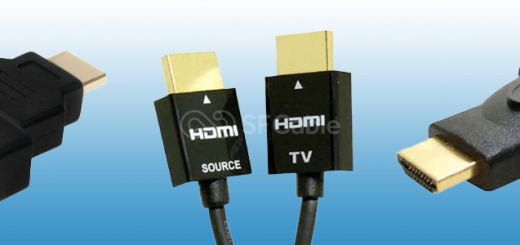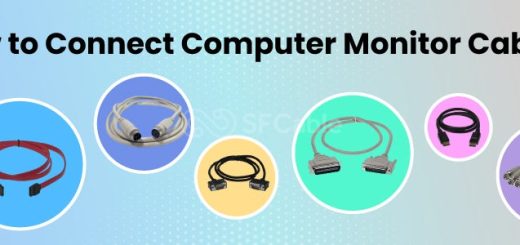Do not Miss These Things While Installing Ethernet Cables
Ethernet cable plays one of the major roles in the evolution of technology, industrial area, manufacturing processes, and more.
And if you are looking to convert your home, workplace, production unit, etc. into technologically advanced places then installing an ethernet cable network would be the perfect decision.
Here’s why:
IoT and Ethernet Cables
IoT aka the internet of things is not a newborn concept. IoT’s concept is to introduce internet connectivity in our everyday life. Having internet in everyday objects will allow them to send and receive the data. And when you have a properly installed ethernet cable in your system, it reduces downtime and renders the constant flow of data. This cable network connects your data systems and other devices including routers, modems, adapters or anything which needs internet in your place.
So, if you are planning to install Ethernet cables, here are some of the points you don’t want to miss:
Planning
After identifying a central location where all of your installed cables will end, you should start planning your ethernet cable installation. It is important that the central location of your cable installation should be large in size to accommodate your current network as well as future expansion.
Understand that the cable you choose should be able to face any harsh environments such as UV light, abrasion, oil, chemicals, extreme temperatures, etc. Hence choosing the right type of cables is necessary.
Deciding the Type
After completing the planning, you can go straight choosing the cables for your industry. Here are the types of cables you can consider.
PROFINET – Made using foil and brain shielding, this type of cable protects signals from the noise expected in plant floors.
CAT6 – One of the major benefits of CAT6 cables is that they are backwards compatible with all the previous CAT cables. Plus, they have higher gauge wires and are capable of running in longer lengths. They support up to 10 Gbps and 250 MHz bandwidth.
CAT6A – They fulfills all the missing features of Cat 6 cables. Their performance is up to 500Mhz and can accommodate distances up to 100 meters.
CAT7A – They supports 10-Gigabit Ethernet, up to 1000Mhz frequencies. You can use these cables in place of fiber optic cabling.
To build a proper ethernet cable network, you will need to buy bulk ethernet cables. As your network will require long lengths of cables, you will have to invest in bulk ethernet cables.
After choosing the right type of cable, you need to keep these do’s and don’ts in mind.
Do’s:
Cross the Power Cable at 90º Angle
If you have to cross your data network cabling, make sure you keep them at the 90º angle in order to avoid interface.
Use Different Color Schemes
You can easily separate them by using different color schemes. Yes, while you have to check, repair or replace certain types of cables, using different color schemes helps you recognize the right cable.
Label Them
The most important thing for your cable system management: Labeling. Make sure to label your cables after asking these questions:
- Which location is the cable intended for?
- How are the cables terminated?
- What’s the cable’s purpose: Ethernet or Jack?
Choose an Effective Wire Management System
- There are numerous types of devices available to manage your systems. Use the safe and effective wire bundling device to organize cabling between racks.
- Create a layout of cable locations that serve as a quick and instant reference to locate cable for repair and replacement.
- Keep space between your wires in a patch panel
- Dress cables without cable-crossing or diving
Consider Connectorized Cable
When you buy pre-connectorized cables, it becomes easier for the plug-and-play installation. It would also provide the assembly required.
Don’ts:
Run Cables at Unsafe Locations
There may be instances when you would need the cables to run off the wall or ceiling type surfaces. One of the important things to keep in mind is that ethernet cables should not touch the ceiling tiles. Also, do not run the cable over the electrical conductor, water channels or such elements which are unsafe.
Do Not Keep Them Tight
Keeping them in a tight bundle with so many cables together may negatively impact the quality of cables. They become difficult to troubleshoot when required.
Never “Over Cable” Your Racks
Exceeding the amount of cables can cause hazards because of the overheating issue. So, make sure not to have too many cables on your racks as their temperature needs to be cool.
Avoid the Terminations Exposure
If you leave the wires exposed by terminations, you run a risk of wire damage inside the termination and can break the inside plug.
Most Importantly: Prepare the Data Systems for the Future
In the world of the Internet of Things, you are capable of connecting anything where they communicate among each in an intelligent manner. It is important to reduce the downtime of your system for smarter and faster communications. That’s why it is important to begin your ethernet cable installation properly for a streamlined working system.


